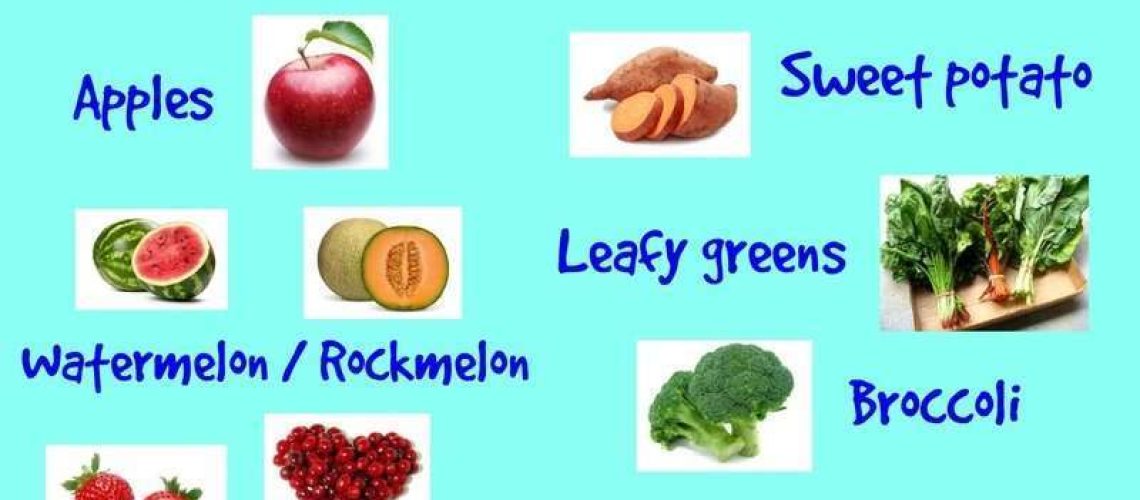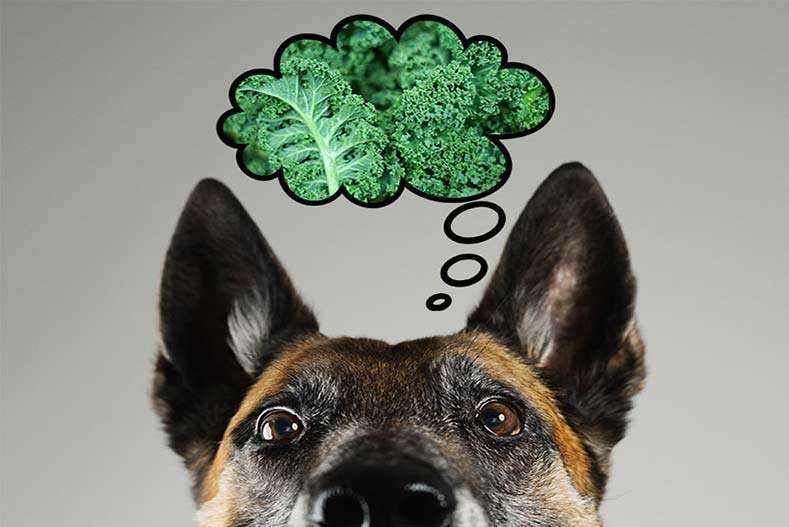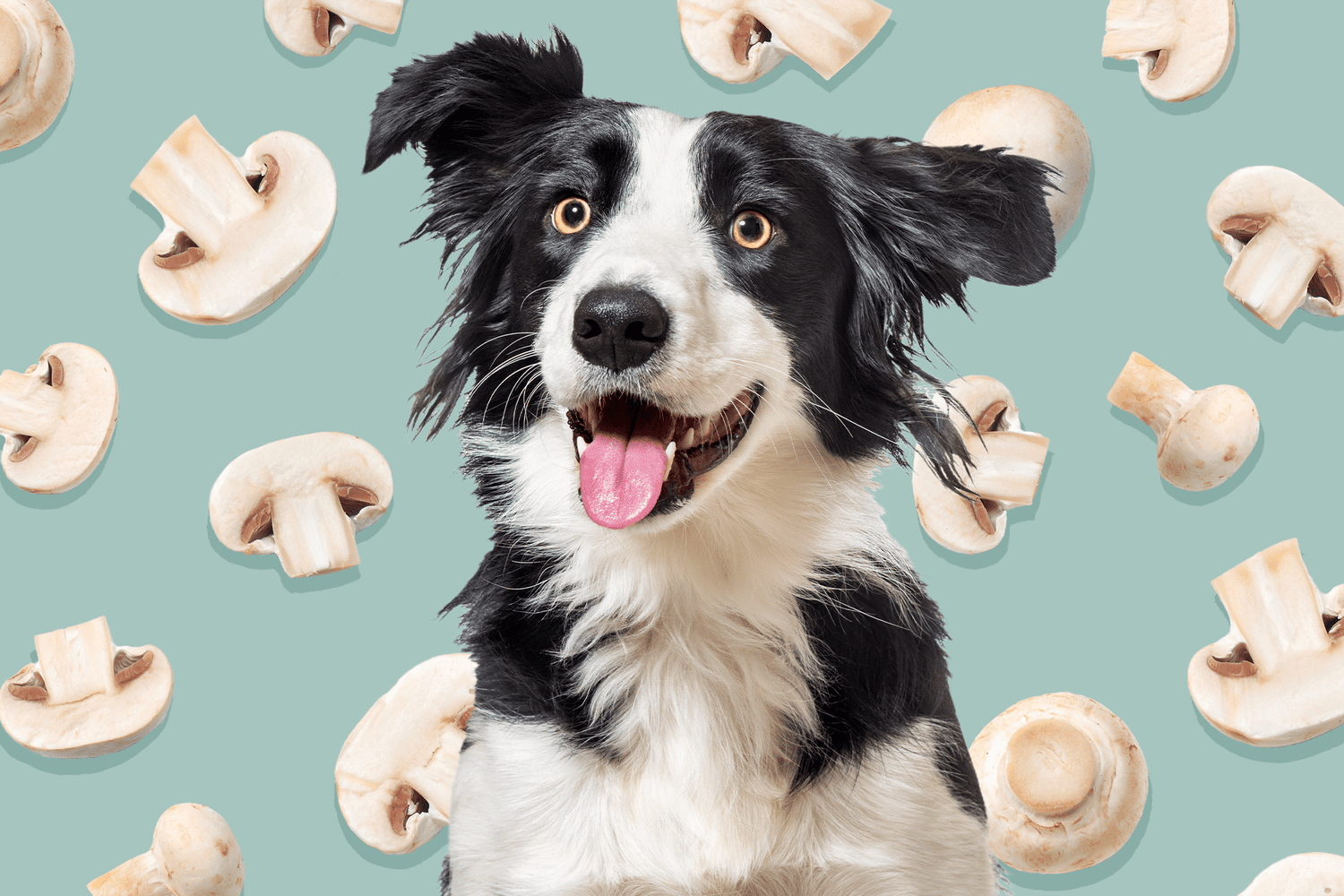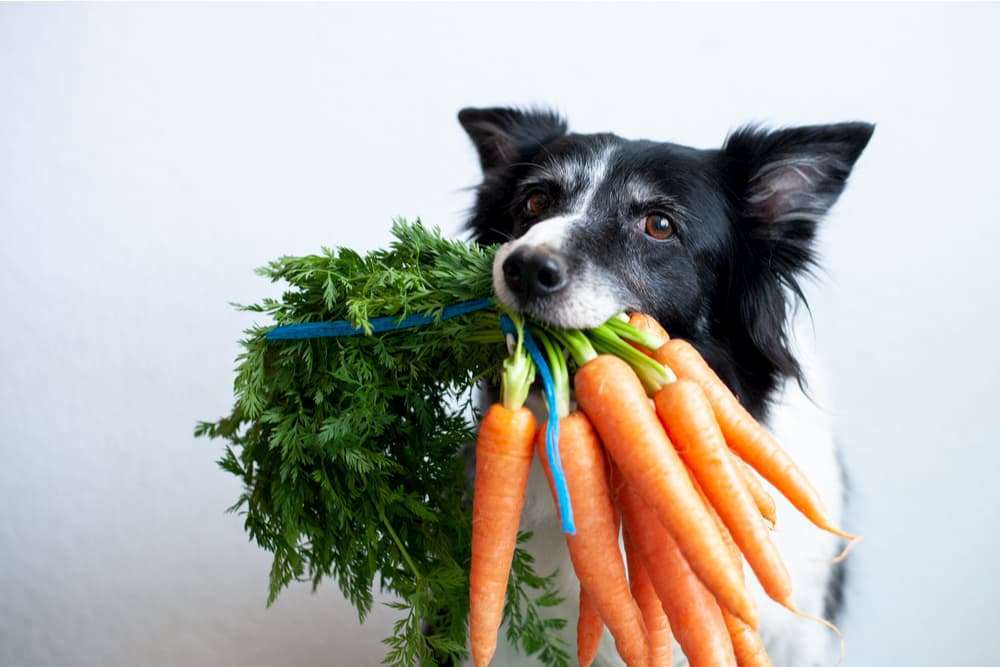Key Takeaways:
- Dogs can safely eat vegetables such as carrots, green beans, and peas as they are low in calories and high in fiber.
- Leafy greens like spinach and kale are also suitable for dogs, providing essential vitamins and minerals.
- Avoid feeding dogs onions, garlic, and mushrooms as they can be toxic to them.
- It is important to cook or steam vegetables before feeding them to dogs to make them easier to digest.
- Always introduce new vegetables gradually into your dog's diet and monitor for any adverse reactions or digestive issues.
Are you a dog lover who wants to ensure the health and well-being of your furry friend? If so, then understanding which vegetables dogs can eat is essential knowledge for you. Not only can incorporating vegetables into your dog's diet provide numerous health benefits, but it can also be a fun and exciting way to introduce new flavors and textures to their meals. Did you know that certain vegetables are packed with vitamins, minerals, and fiber that can support your dog's immune system, aid in digestion, and even promote a shiny coat? So, whether you're looking to add some variety to your dog's meals or simply want to make sure they're getting all the nutrients they need, exploring the world of dog-friendly vegetables is definitely worth your time. Let's dive in and discover which vegetables are safe and beneficial for our beloved canine companions!
Safe Vegetables for Dogs: What Can They Eat?
1. Leafy Greens
Dogs can safely consume leafy greens like spinach, kale, and lettuce. These vegetables are packed with essential vitamins and minerals that can benefit your furry friend's overall health. Leafy greens are low in calories and high in fiber, making them a great addition to their diet.
Leafy greens contain antioxidants that help strengthen the immune system and protect against diseases. They also provide valuable nutrients such as vitamin A, vitamin C, and calcium. Including these vegetables in your dog's meals can promote healthy digestion and contribute to their overall well-being.
2. Bell Peppers
Bell peppers are another safe vegetable option for dogs. These colorful veggies are rich in antioxidants and vitamins A and C, which support a strong immune system. Bell peppers come in different colors like red, green, and yellow, each offering its own unique nutritional benefits.
You can feed bell peppers to your dog raw or cooked. However, it's important to remove the seeds and stems before serving them. Chopped bell peppers make a crunchy treat or a nutritious addition to homemade dog food recipes.
Carrots for Dogs: Are They a Healthy Choice?
Carrots are not only safe but also highly nutritious for dogs. They are an excellent source of beta-carotene, which converts into vitamin A in the body. Vitamin A is crucial for maintaining good vision and supporting a healthy immune system.
In addition to being packed with vitamins, carrots also contain dietary fiber that aids digestion and promotes regular bowel movements for your furry companion. The crunchy texture of carrots can also help clean your dog's teeth naturally while they chew on them.
To incorporate carrots into your dog's diet, you can serve them raw or cooked. Raw carrots make a satisfying and healthy snack, while cooked carrots can be included in their meals. Just make sure to cut the carrots into small, bite-sized pieces to prevent choking hazards.
Avoid These Vegetables: What Not to Feed Your Dog
While many vegetables are safe for dogs, there are a few that should be avoided. Onions and garlic, for example, contain compounds that can cause damage to your dog's red blood cells and lead to anemia. It's best to avoid feeding any form of onion or garlic, including powdered versions.
Another vegetable to steer clear of is avocado. Avocados contain persin, a substance that can be toxic to dogs when consumed in large quantities. The pit and skin of avocados also pose a choking hazard and should never be given to your furry friend.
Lastly, mushrooms can be harmful to dogs as well. While some types of mushrooms are safe, it's difficult for pet owners to distinguish between the edible and toxic varieties. To ensure your dog's safety, it's best to avoid feeding them mushrooms altogether.
Health Benefits of Vegetables for Dogs: How Can They Help?
Incorporating vegetables into your dog's diet can provide numerous health benefits. Firstly, vegetables are a great source of essential vitamins and minerals that support overall well-being. These nutrients help maintain healthy bones, improve digestion, boost the immune system, and promote optimal organ function.
Fiber-rich vegetables like sweet potatoes and green beans aid in digestion by promoting regular bowel movements and preventing constipation. They also help regulate blood sugar levels in diabetic dogs.
Additionally, certain vegetables like broccoli contain antioxidants that protect against cell damage caused by free radicals. This reduces the risk of chronic diseases and helps maintain a healthy coat and skin for your furry friend.
Feeding Vegetables to Dogs: Important Precautions
While vegetables are generally safe for dogs, it's essential to take some precautions when feeding them. Firstly, always wash the vegetables thoroughly to remove any dirt or pesticides that may be present on the surface.
It's also important to introduce new vegetables gradually into your dog's diet. Start with small portions and monitor their reaction. Some dogs may experience digestive upset or allergies to certain vegetables, so it's crucial to observe any adverse effects.
Lastly, avoid seasoning vegetables with spices, salt, butter, or oils before serving them to your dog. These additives can be harmful and cause digestive issues. Stick to plain, cooked vegetables as a healthy addition to their regular meals.
Broccoli for Dogs: Risks and Benefits Explained
Broccoli is a vegetable that offers both risks and benefits for dogs. On one hand, broccoli is packed with essential nutrients like vitamins A, C, and K. It also contains fiber and antioxidants that contribute to good health.
However, broccoli can be difficult for some dogs to digest due to its high fiber content. Feeding large amounts of raw broccoli can lead to gastrointestinal upset or even blockages in some cases. It's best to steam or cook broccoli before serving it to your furry friend.
In addition, the florets of broccoli contain an ingredient called isothiocyanate which can cause gastric irritation in some dogs. To minimize any potential risks associated with broccoli consumption, it's recommended to feed it in moderation and only offer small portions at a time.
Digesting Vegetables: How to Prepare Them for Your Dog
To ensure optimal digestion and nutrient absorption, it's important to prepare vegetables in a way that makes them easier for your dog to digest. Cooking or steaming vegetables can help break down the tough cell walls, making them more palatable and easier to digest.
When cooking vegetables for your dog, avoid using seasonings or additives that may be harmful to them. Plain, cooked vegetables are the safest option. You can also chop the vegetables into smaller pieces or puree them to make it easier for your furry friend to consume.
Remember to introduce new vegetables gradually into your dog's diet and monitor their response. If you notice any adverse reactions such as vomiting, diarrhea, or changes in behavior, consult with your veterinarian.
In conclusion, dogs can safely eat a variety of vegetables such as carrots, peas, and green beans. However, it is important to avoid feeding them onions, garlic, and other toxic vegetables that could harm their health.
What vegetables can dogs not eat?
The vegetables listed below are not safe for dogs to consume: Garlic, onions, shallots, and chives. Whether raw or cooked, these vegetables can be toxic to dogs as they contain substances that can lead to anemia and harm red blood cells. Symptoms of illness may take a few days to appear.
What is a healthy vegetable for dogs?
Carrots are commonly used in dog food and dog treats. Celery is also safe for dogs to eat and provides vitamins A, B, and C, as well as heart-healthy nutrients and potential cancer-fighting properties.
Is broccoli bad for dogs to eat?
Indeed, dogs can consume broccoli. Dogs can consume this vegetable in both cooked and raw forms, as long as it is free from any seasonings or oils. However, it is important to only provide broccoli in small amounts to dogs, especially because the florets contain isothiocyanates, which may cause stomach irritation in dogs.
What mixed vegetables are good for dogs?
Dogs can enjoy vegetables as a healthy and exciting treat. Safe vegetable options for dogs include carrots, pumpkin, sweet potato, green beans, cucumber, and butternut squash.
Is it OK to give your dog carrots everyday?
It is safe to include carrots in your dog's daily diet as long as they are not the sole source of nutrition. According to Dr. Burch, it is recommended to feed carrots as a treat, making up less than 10 percent of their daily calorie intake, in order to maintain a balanced diet for your dog.
Are potatoes good for dogs?
Dogs can consume potatoes as long as they are cooked simply and given in moderation. The best option is to provide roasted potatoes without any spices or butter. However, it is important to avoid feeding your dog raw or boiled potatoes, as these can be harmful due to the presence of solanine.

















